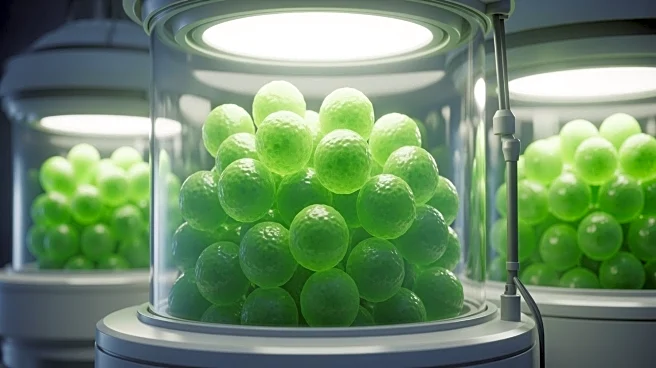What's Happening?
JSBio, a leading manufacturer of cell culture media in the Asia-Pacific (APAC) region, is intensifying its focus on cellular agriculture. This strategic move aims to accelerate the industry's progress towards sustainability and industrial scalability.
Shun Luo, the founder of JSBio, emphasized the transformative potential of cellular agriculture, which allows for the production of authentic animal ingredients directly from cells. This approach significantly enhances food security and sustainability. JSBio has leveraged its decade-long experience in large-scale biopharmaceutical production to develop over 200 serum-free cell culture media products. Collaborating with pioneers in cultivated meat, JSBio has introduced the 'CellKey® Series', specifically designed for cultivated meat production, incorporating essential food-grade components. The company is committed to reducing costs, offering media at less than one US dollar per liter, and aims to further decrease prices as productivity increases. JSBio's substantial capacity is supported by Asia's largest dry powder culture media network, and its membership in the APAC Society for Cellular Agriculture underscores its dedication to regional innovation.
Why It's Important?
The expansion of JSBio into cellular agriculture is significant for several reasons. Firstly, it addresses the growing demand for sustainable food production methods, which are crucial in the face of global food security challenges. By producing animal ingredients directly from cells, JSBio's approach reduces reliance on traditional livestock farming, which is often resource-intensive and environmentally damaging. This shift could lead to a reduction in greenhouse gas emissions and land use, contributing positively to environmental conservation efforts. Additionally, the cost-effective production of cell culture media by JSBio could make cultivated meat more accessible to consumers, potentially transforming the food industry. As the company collaborates with cultivated meat pioneers, it positions itself as a key player in the emerging cellular agriculture sector, which could drive innovation and economic growth in the APAC region and beyond.
What's Next?
JSBio's continued expansion in cellular agriculture is likely to spur further developments in the industry. As the company enhances its production capabilities and reduces costs, it may attract more partnerships with cultivated meat producers, accelerating the commercialization of these products. This could lead to increased availability of cultivated meat in the market, offering consumers more sustainable food options. Additionally, JSBio's involvement in the APAC Society for Cellular Agriculture suggests ongoing collaboration and innovation within the region, potentially influencing global standards and practices in cellular agriculture. Stakeholders, including policymakers, environmental groups, and food industry leaders, may closely monitor these developments, considering potential regulatory adjustments and market strategies to support the growth of this sector.
Beyond the Headlines
The implications of JSBio's expansion into cellular agriculture extend beyond immediate industry impacts. Ethically, this approach addresses concerns related to animal welfare, as it reduces the need for traditional livestock farming. Legally, it may prompt discussions on regulatory frameworks for cultivated meat, ensuring safety and quality standards are met. Culturally, the acceptance of cellular agriculture products could shift consumer perceptions of meat consumption, promoting more sustainable dietary habits. Long-term, JSBio's efforts could contribute to a global shift towards more resilient food systems, capable of withstanding environmental and economic pressures.














